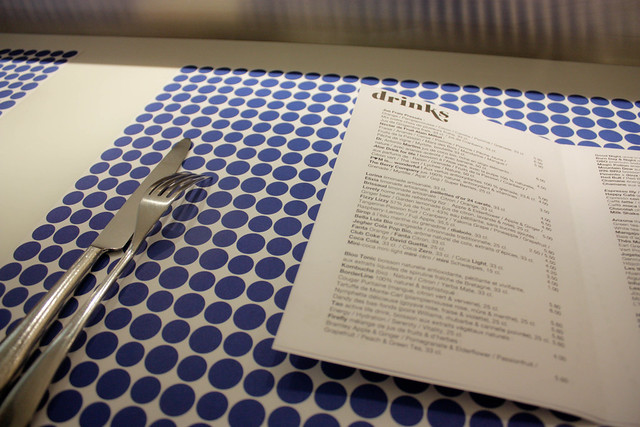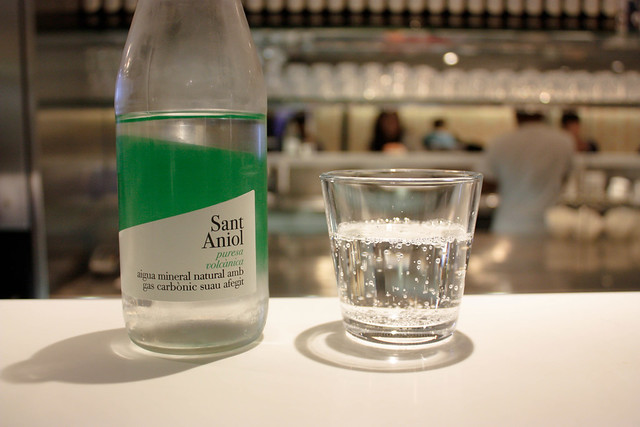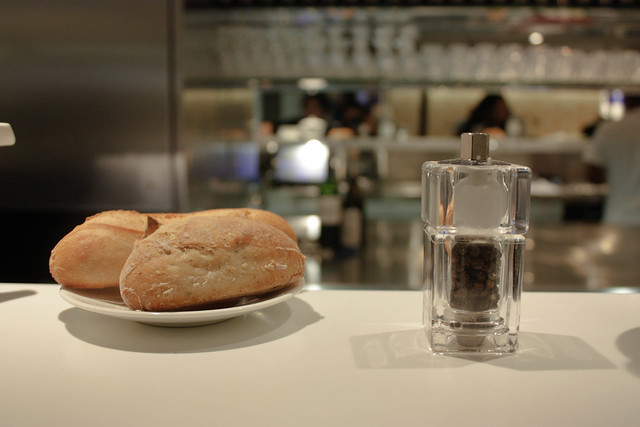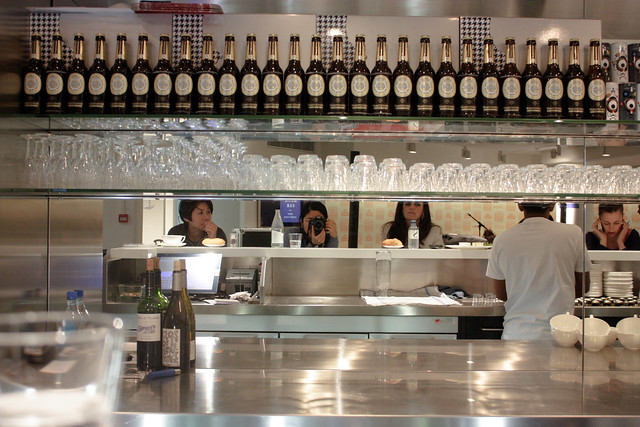 |
| Late lunch at Le Water Bar in Colette, Paris |
*As far as vacations go, the trip to London and Paris that my mother and I took a couple weeks ago was definitely not the most leisurely or relaxing. Because it was her first time in either city, I felt a nearly crazed urgency to cram in as much as possible into the few days that we had. I was an overachiever in constructing our itinerary, and it took my mom's gentle reminder that we were on vacation, not a rat race, to convince me that it wouldn't be the end of the world if she didn't visit the exact location where Anne Boleyn was beheaded or see the entirety of Monet's oeuvre. She herself was convinced that she has seen the Mona Lisa, never having been to the Louvre, and although I first argued with her that she hadn't, I soon realized it was better to let her believe that she had so we could skip the anti-climactic and horribly claustrophobic viewing of Da Vinci's alleged magnum opus.
*My mom is my counterpoint when it comes to ideas of productivity and pace of life. The intensity of the academic environments I've grown up in has conditioned me to thrive on productivity, efficiency, and efficacy. To thrive on such ideas seems innocuous but when taken to an extreme, the thriving is not so much living as it is a series of suffocating motions and compulsions. And yet the American culture was built on this Protestant ethic. Productivity, efficiency, and efficacy, in the academic culture I live in, are the holiest of virtues - the cause, the result, and the proof of both intelligence and character. Over the past few years, I've become increasingly bothered and repulsed by this ideology, but when it permeates the environment in which you're rewarded for external, measurable achievements, it's difficult not to live under the same regime.
*All this productivity - you have to ask yourself, on an individual level, to what end? You just need to know how to answer that question for yourself personally.


*Against the backdrop of a go-go-go culture at home, the ceremonies of tea, the long drawn-out meals that went late into the night seemed that much stranger. Most European cultures have a built-in time of rest in both their days and their years. The Spanish have a daily siesta. The English have afternoon tea, if not multiple teatimes throughout the day. In Italy, there is no concept of a coffee "to-go" - you drink your espresso at the bar. You finish, then you leave. The shop hours are shorter in Europe. That stores close for weeks at a time during the year because of sanctioned vacation time seems absurd to most Americans. Because we prize convenience, stores and shops are not people's homes but factory destinations. Still, I'll be the first to admit that in times of emergency and catastrophe American efficiency, on a small scale, is wonderful. When a snowstorm hit as I was leaving Florence, I was stuck in the airport for nearly five days as a result of no one showing up to work at the airports, and the disorganization was both appalling and frustrating. But when I think about what I like about European culture - in this case, the formal treatment of rest and relaxation, the prescription of rest and relaxation into both daily and annual schedules, I'm reminded how enjoyable and luxurious everyday meals should be. How going to a coffee shop to do nothing rather than "to work" is perfectly acceptable and well worth my time. How sitting on the grass in the sun is the most beautiful way to spend a day.
*The Italians have coined a beautiful phrase: dolce far niente. The sweetness of doing nothing, the "pleasant relaxation of carefree idleness" (Merriam Webster). I love this phrase and it has stuck with me since I first heard it in high school. But at the end of the day, there really is no concept of "doing something" or "doing nothing" - there is only living, so live well.

0 comments:
Post a Comment